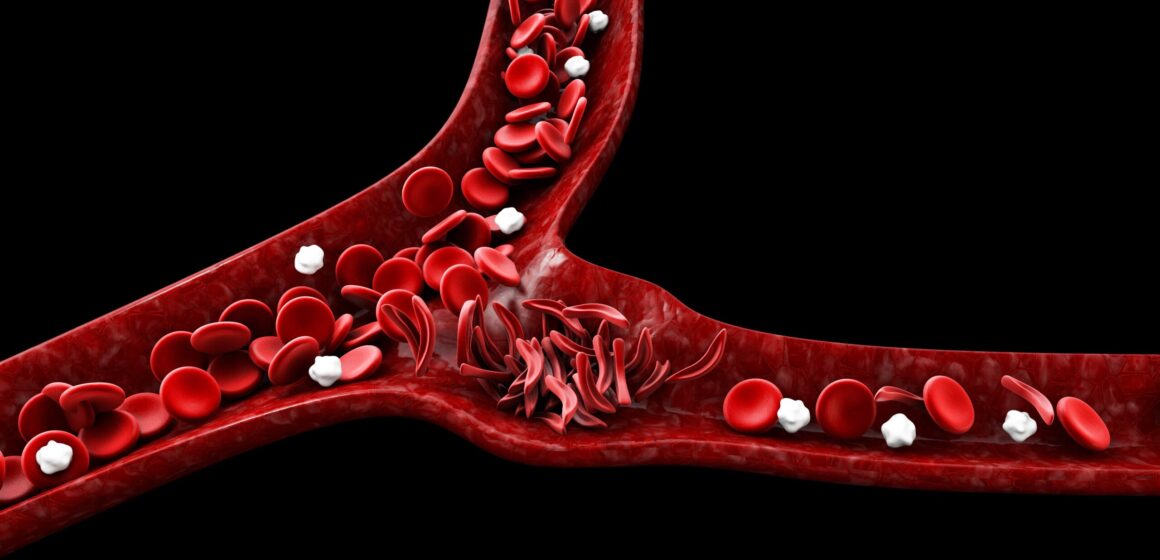Sickle cell disease is becoming an increasing concern in the UK. It is currently the fastest-growing genetic condition in the country, with a rising number of cases, particularly among certain communities.
Sickle cell disease is an inherited condition that affects the red blood cells. Under normal circumstances, red blood cells are round and flexible, allowing them to move easily through blood vessels and deliver oxygen throughout the body. However, in individuals with sickle cell disease, the red blood cells take on a crescent or sickle shape. This abnormal shape makes it difficult for the cells to pass through blood vessels smoothly, leading to blockages and reduced oxygen delivery.
People living with sickle cell disease often experience fatigue, episodes of severe pain, and other serious health complications. These painful episodes are known as “sickle cell crises” and can last for several days or even weeks. The condition can also cause anaemia, leading to weakness and shortness of breath.
Why is Sickle Cell Growing in the UK?
Sickle cell disease is becoming more common in the UK. There are a few reasons for this. First, the number of people diagnosed with the condition is increasing every year. About 250 new cases of sickle cell disease are reported annually in the UK.
Second, the condition is most common among people from African, Caribbean, and South Asian backgrounds. These groups have a higher chance of carrying the gene for sickle cell disease. As more people from these backgrounds live in the UK, the number of cases continues to rise.
Finally, better screening programs in the UK are helping doctors find sickle cell disease early. This means more people are being diagnosed and getting the care they need.

The Strain on the Healthcare System
As the number of people living with the disorder continues to rise, the UK’s healthcare system is coming under increasing pressure.
One of the most pressing challenges is the need for regular blood donations. Many individuals with the condition require frequent blood transfusions to manage their symptoms and prevent complications. However, there is a shortage of suitable blood donors—particularly those whose blood closely matches the specific needs of affected patients, often from Black and ethnic minority communities.
Another significant issue is the limited availability of treatment options. Currently, only two medications are approved for the treatment of sickle cell disease in the UK, compared to five in the United States. As a result, patients in the UK have fewer choices for managing their condition effectively.
Access to specialist care is also uneven across the country. While cities like London and Manchester have specialized sickle cell treatment centres, many regions lack dedicated services, making it harder for patients to receive the expert care they need.
Living with Sickle Cell Disease
Living with sickle cell disease can be very challenging. The pain from sickle cell crises can be severe and last for days. Some people with the disease also experience other health problems, such as delayed growth or strokes.
Besides the physical pain, sickle cell disease can also affect a person’s mental health. Many people with the disease struggle with anxiety or depression because of the constant health challenges they face.
Government and NHS Efforts to Help
The UK government and NHS are working to improve care for individuals with sickle cell disease. A key advancement is the approval of new treatments. For instance, NHS England has approved a gene therapy called exa-cel, which has the potential to cure the disease by correcting the faulty gene responsible for it. Clinical trials have shown that exa-cel can prevent painful sickle cell crises, marking a major breakthrough for patients.
In addition, NHS England has introduced genetic blood testing, which enables doctors to match blood more precisely for transfusions. This significantly reduces the risk of complications and side effects in patients. The government is also investing in the expansion of treatment centers across the country, ensuring better access to high-quality care for people living with sickle cell disease.

Racial and Ethnic Healthcare Disparities
The disease primarily affects Black African and Caribbean communities. Unfortunately, these communities often face racial inequalities in healthcare.
There is also a lack of specialist sickle cell nurses. Studies show that for every 100 patients with cystic fibrosis, there are two specialist nurses. But for every 100 patients with sickle cell disease, there is only one nurse. This shortage of trained staff makes it harder to provide good care.
Key Takeaways
Although living with sickle cell disease is difficult, the UK is making progress in providing better care. With new treatments, better access to specialist care, and efforts to reduce racial disparities, people with sickle cell disease can expect a brighter future. If you can, consider donating blood to help patients in need, and spread the word about the disease to help others understand this important health issue.
By continuing to raise awareness and support people with sickle cell disease, we can all play a part in improving care for those affected by this condition.
Thank you for reading, click the link to read more of our Health Articles
Inside Success presents to you our digital platform, created to inform, inspire and empower 16-35s. Through our articles, we aim to bring bold ideas, fresh voices and real conservations to life. From mental health advice, to career information, and fashion tips to social issue debates, Inside Success is proud to have created a platform that has something to cater to everyone.




Leave a Reply
You must be logged in to post a comment.